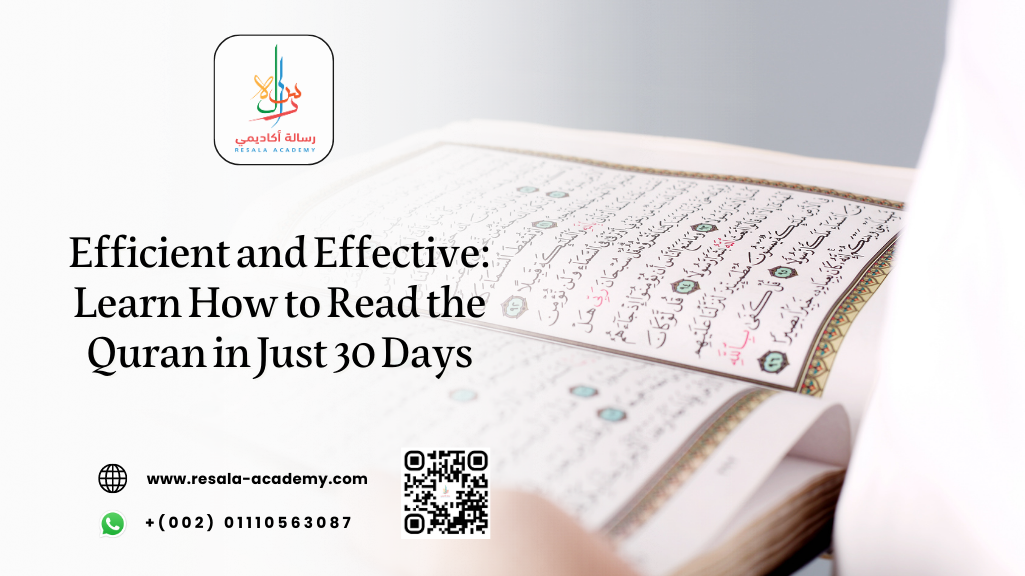Table of Contents
Exploring the Length of the Quran: How Many Pages in the Quran?
How Many Pages in the Quran? This question has intrigued countless individuals seeking to explore the depths of this sacred text. The Quran, considered the holy book of Islam, is a profound source of guidance and inspiration for millions around the world. Its rich teachings have been preserved meticulously over centuries, but its physical length can vary due to various factors such as font size, script style, and paper quality.
In this blog post, we will dive into the fascinating realm of the Quran’s page count variations and shed light on how different elements can impact its length. We’ll also compare the number of pages in Arabic and English translations, discuss the significance of memorizing and reciting this divine scripture, explore how long it takes to commit it to memory, and even introduce you to a trusted online platform where you can learn more about studying the Quran. So let’s begin our journey through these intricacies and unravel some enlightening insights along the way!
How Many Pages in the Quran? Overview of Quran Page Count Variations
The Quran, being a comprehensive religious text, is known for its profound depth and extensive content. When it comes to the page count of the Quran, some variations exist due to different factors.
One factor that affects the number of pages in the Quran is the font size used in its printing. Larger fonts naturally lead to more space being occupied on each page, resulting in a higher page count. Conversely, smaller fonts can fit more text onto a single page, reducing the overall number of pages.
Another factor influencing the page count is script style. The Quran has been written in various calligraphic styles over centuries. Some scripts may require more or less space than others when transcribing the sacred verses onto paper.
Paper quality plays a significant role as well. Thicker paper tends to result in fewer pages compared to thinner paper because each sheet can accommodate more content without bleeding through or causing transparency issues.
These variations in font size, script style, and paper quality contribute to differences in page counts across different versions of the Quran available today. It’s important to remember that regardless of these variations, every edition remains true to preserving this divine scripture’s essence and message.
The Impact of Font Size, Script Style, and Paper Quality on Page Count
Font size, script style, and paper quality can all have an impact on the number of pages in the Quran. Let’s take a closer look at how these factors affect the page count:
1. Font Size:
– Larger font sizes may result in fewer lines per page, which can increase the overall page count.
– Smaller font sizes allow for more text to fit on each page, potentially reducing the total number of pages.
2. Script Style:
– Different styles of Arabic calligraphy can vary in terms of spacing between letters and words.
– Elaborate script styles may require more space, leading to an increase in page count.
3. Paper Quality:
– Thicker paper stock will result in thicker pages, potentially increasing the overall thickness and weight of the Quran.
– Higher-quality paper may be able to accommodate smaller fonts without sacrificing readability.
4. Combination Effects:
– The combined impact of font size, script style, and paper quality can significantly affect the final page count.
– For example, using a larger font size with an intricate script style on thin paper could result in a higher number of pages compared to a smaller font size with a simpler script style printed on thick paper.
It is important to note that regardless of variations in page count due to these factors, every copy of the Quran contains all 114 surahs (chapters) and remains equally sacred regardless of its physical length or appearance.
Comparing the Length of the Quran in Arabic and English
The Quran, revered by Muslims as the holy book of Islam, is available in various translations to cater to readers around the world. One key aspect that differs between these translations is the length of the text. Let’s explore how the length of the Quran varies between its original Arabic version and translated versions in English.
When comparing page count, it’s important to note that Arabic script tends to occupy more space than English text due to its unique calligraphic style. As a result, an average Arabic copy of the Quran typically consists of more pages compared to an English translation.
Additionally, font size plays a significant role in determining page count. Some publishers may use larger fonts for easier reading, resulting in fewer words per page and therefore more pages overall. Conversely, smaller fonts can fit more content on a single page.
Another factor influencing page count is paper quality. Thicker paper can accommodate denser text without bleed-through or show-through issues commonly found with thinner pages. This means that higher-quality editions may have fewer pages due to their ability to hold more content per sheet.
While there are variations in terms of page count between different translations of the Quran, these differences arise from factors such as font size, script style, and paper quality rather than variations in actual content or meaning. Readers worldwide need to choose a version that suits their preferences while respecting and appreciating this sacred scripture.
Understanding the Number of Surahs in the Quran
The Quran is divided into chapters known as surahs. These surahs vary in length and serve as important units of scripture within the holy book. In total, there are 114 surahs in the Quran. Each surah has its unique name and number, allowing for easy reference and navigation.
Some surahs are short with only a few verses, while others are longer with multiple pages. The longest surah, Al-Baqarah (The Cow), spans over 40 pages! Despite their varying lengths, each surah holds immense significance and conveys powerful messages to readers.
Each surah is also further divided into smaller sections called ayat or verses. These verses contain precise teachings that guide Muslims in matters of faith, ethics, and lifestyle practices. They offer insights into various aspects of life including prayer, charity, family values, societal norms, justice systems, and more.
Knowing the number of surahs allows individuals to locate specific passages or topics they wish to study or reflect upon. It enables them to explore different themes within Islam’s sacred text and gain a deeper understanding of its teachings.
As you delve into the study of the Quran’s many chapters and verses, you will discover an abundance of wisdom waiting to be explored. Whether it’s through memorization or recitation during prayers or personal reflection on its timeless lessons – each page holds treasures that can transform lives.
The Significance of Memorizing and Reciting the Quran
Memorizing and reciting the Quran holds immense significance in Islamic culture. It is considered a spiritual journey that connects individuals with Allah and strengthens their faith. Here are some reasons why memorizing and reciting the Quran is so important:
1. Connection with Allah:
Memorization allows Muslims to establish a personal bond with Allah by internalizing His words. By committing verses to memory, individuals can reflect on their meanings, seek guidance, and deepen their understanding of Islam.
2. Spiritual Upliftment:
Recitation has a profound impact on one’s spirituality. The melodious sound of Quranic verses recited correctly uplifts the soul, brings tranquility, and instills peace in hearts.
3. Preservation of Knowledge:
Memorization ensures the preservation of the divine message for future generations. By memorizing it word by word, Muslims become custodians of this sacred text, safeguarding its authenticity over time.
4. Rewards in this Life and Hereafter:
The Prophet Muhammad (peace be upon him) emphasized that those who memorize even a few verses will be rewarded greatly both in this life and in the hereafter.
Exploring the Timeframe to Memorize the Entire Quran
Memorizing the entire Quran is a noble endeavor that many Muslims aspire to undertake. However, the timeframe required to achieve this feat can vary depending on several factors.
1. Commitment and Dedication:
Memorizing the Quran requires consistent effort and dedication. It is not an overnight process but rather a lifelong journey of learning and revising. The time it takes to memorize the entire Quran can range from months to years, depending on an individual’s level of commitment.
2. Learning Methodology:
Different methodologies are employed when memorizing the Quran, such as repetition, recitation with a teacher, or utilizing online resources and apps. Each method has its own pace of progress, which can influence how quickly one can complete memorization.
3. Individual Ability:
Everyone learns at their own pace, so there is no definitive timeframe for memorization. Some individuals have exceptional memory skills and may be able to memorize at a faster rate compared to others who require more time.
4. Daily Practice:
Consistency in daily practice plays a vital role in mastering any skill, including memorization of the Quran. Regular revision helps reinforce what has been learned and aids in retaining information over time.
In conclusion, while there is no fixed timeframe for completing full memorization of the Quran due to the various factors involved, what matters most is consistent effort and dedication toward this spiritual goal.
Resala Academy Offers Online Quran Classes
Are you interested in deepening your understanding of the Quran and learning how to recite it with proper Tajweed? Look no further than Resala Academy, where we offer online Quran classes that cater to learners of all ages and levels of expertise. Our mission is to provide accessible and convenient access to the teachings of the Quran, allowing individuals from around the world to embark on a transformative journey.
At Resala Academy, our highly qualified instructors bring years of experience and expertise in teaching the Quran. Through our online platform, students can benefit from personalized attention and guidance in a one-on-one or group setting. Whether you are a beginner looking to learn Arabic script or an advanced learner seeking mastery in recitation, our courses are designed to meet your specific needs.
We understand that flexibility is key for many learners, which is why we offer flexible scheduling options for our online classes. No matter where you are located or what time zone you are in, you can easily fit your Quran studies into your busy schedule. With just a computer or smartphone and an internet connection, you can join our virtual classrooms and begin your journey toward mastering this sacred text.
With Resala Academy’s online Quran classes, not only will you develop a deeper understanding of the words revealed by Allah but also cultivate a strong connection with Islam’s holy book through memorization and recitation practice. Join us today at Resala Academy – let us guide you on this spiritual path as we explore the beauty and wisdom within every page of the Quran.
FAQs
1. How many pages are there in the Quran?
The number of pages in the Quran can vary depending on several factors, including font size, script style, and paper quality. On average, a standard Arabic version of the Quran contains approximately 604 pages. However, it is important to note that this count may differ slightly due to variations in printing and binding methods.
2. Is the length of the Quran different in Arabic and English translations?
Yes, there is a difference in length between the original Arabic text of the Quran and its translations into other languages like English. The Arabic version consists of 114 surahs (chapters) with varying lengths while maintaining consistent meanings across all copies worldwide. Translations often have more or fewer words per page compared to the original Arabic text due to differences in language structure.
3. How long does it take to memorize the entire Quran?
The time required for individuals to memorize the entire Quran varies depending on their dedication, ability to learn, and available study time per day/week/month/year! Some people can complete this remarkable feat within a few months or years with consistent effort and guidance from qualified teachers or scholars.
4. Do online platforms offer classes for learning and reciting the Quran?
Absolutely! Resala Academy is an example of an online platform offering comprehensive classes for learning and reciting the Holy Quran at your convenience! These courses provide students with expert guidance from experienced tutors who follow proven teaching methodologies tailored specifically for online learners around the globe!
Conclusion
In this exploration of the length of the Quran, we have delved into various aspects that contribute to the number of pages in this holy book. From variations in font size, script style, and paper quality to understanding the differences between Arabic and English translations, we have uncovered some fascinating insights.
The Quran is not simply a book with a specific page count; it holds immense significance for Muslims around the world. Memorizing and reciting its verses is considered an act of devotion and brings spiritual fulfillment. The time frame required to memorize the entire Quran may vary from individual to individual but dedication and consistent effort are key.
Fortunately, Resala Academy offers online Quran classes for those who wish to deepen their understanding of this sacred text. Whether you want to learn how to read or recite it fluently or understand its profound teachings, these classes provide an accessible platform for individuals across different age groups.
As we conclude our discussion on how many pages are there in the Quran, let us remember that beyond its physical dimensions lies a vast ocean of knowledge and wisdom. Each page represents not only words but also faith, guidance, solace, and hope for millions worldwide.
Whether you approach it as a scholar seeking intellectual enlightenment or as a seeker yearning for spiritual connection, exploring the pages of the Quran can be a transformative journey. So let us turn these pages with reverence and humility as we continue our quest for truth and enlightenment within its timeless verses.




